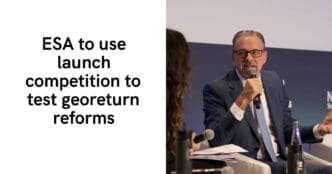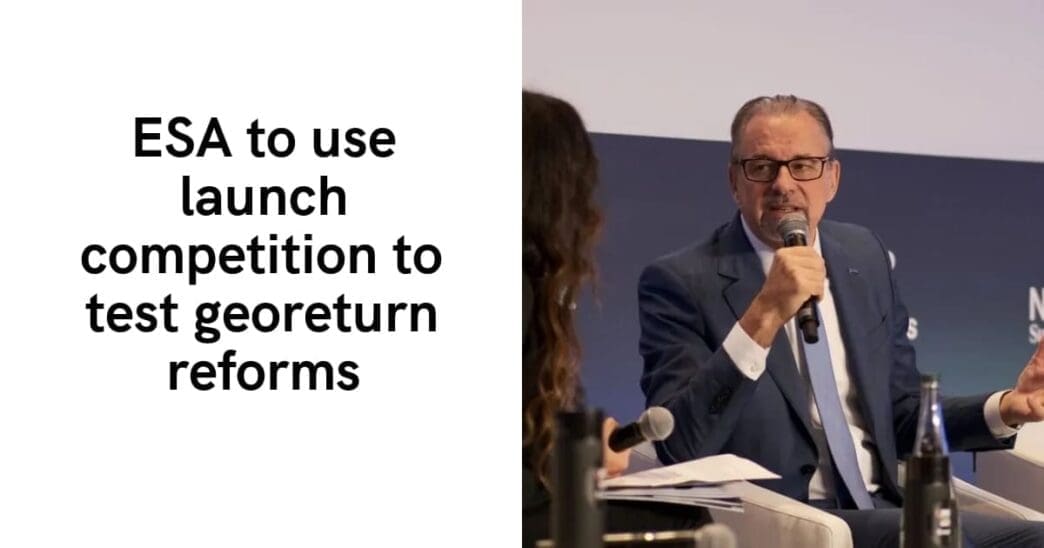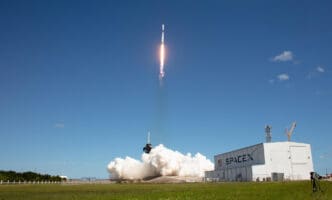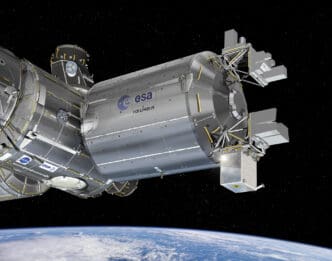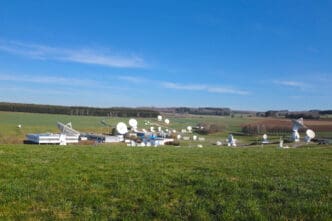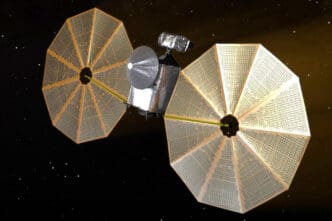The European Space Agency (ESA) is set to put its longstanding georeturn policy to the test with an upcoming launch competition. This move comes as ESA attempts to address criticisms and inefficiencies tied to its policy of linking contracts to member state contributions.
ESA has traditionally adhered to a georeturn policy, ensuring that member states receive contracts proportional to their financial contributions to ESA programs. Advocates suggest this incentivizes countries to fund space initiatives, but critics argue it leads to economic inefficiencies, hindering the competitiveness of European companies.
A report led by former Italian Prime Minister Mario Draghi, released by the European Commission, has recommended the discontinuation of the georeturn policy. The report highlights that the policy creates market distortions and hampers efficiency within the European space industry.
In response, ESA Director General Josef Aschbacher announced plans to simplify georeturn. During a December briefing following an ESA Council meeting, Aschbacher discussed potential modifications to the policy, emphasizing the importance of maintaining georeturn while exploring broader program applications rather than project-specific ones.
ESA’s internal ‘tiger team,’ comprising industry and agency representatives, has pushed for simplification, supporting Aschbacher’s view that georeturn remains critical for member states. The proposed changes involve adopting an envelope-type of program structure to enhance competitiveness and efficiency.
Géraldine Naja, ESA’s director of commercialization, industry, and competitiveness, describes georeturn as a foundational element of ESA’s industrial policy, alongside cost efficiency, European preference, and competitive bidding. She suggests aligning georeturn with competition and market principles to bolster competitiveness.
One significant change under consideration is the ‘fair contribution’ approach, where ESA conducts project competitions followed by member state contributions based on their firms’ performance. This model will feature in proposals for the November ministerial meeting, marking a shift toward broader georeturn revisions.
In line with these changes, ESA is gearing up for the European Launcher Challenge, a competition designed to support new European launch vehicle development. This initiative will operate under the fair contribution framework rather than traditional georeturn principles.
ESA’s competition has already received backing from member states, with an enabling resolution passed during the December ESA Council meeting allowing formal proceedings. ESA plans to issue a request for proposals in February, allowing industry consortia to submit projects unhindered by georeturn constraints.
In December, the German government allocated 95 million euros to ESA’s ‘Boost!’ program, supporting German companies such as HyImpulse, Isar Aerospace, and Rocket Factory Augsburg as they prepare for the competition. Anna Christmann, Germany’s aerospace coordinator, emphasized the importance of technological sovereignty for Germany and Europe, noting that the European Launcher Challenge and support for German micro-launchers are essential components of this strategy.
The upcoming European launch competition represents a pivotal moment for ESA’s georeturn policy, providing a platform to test new approaches aimed at fostering greater competitiveness and efficiency within the European space sector. As ESA moves forward with its proposed reforms, the outcome of this competition may well shape the agency’s future policies and the broader landscape of European space endeavors.
Source: Spacenews

